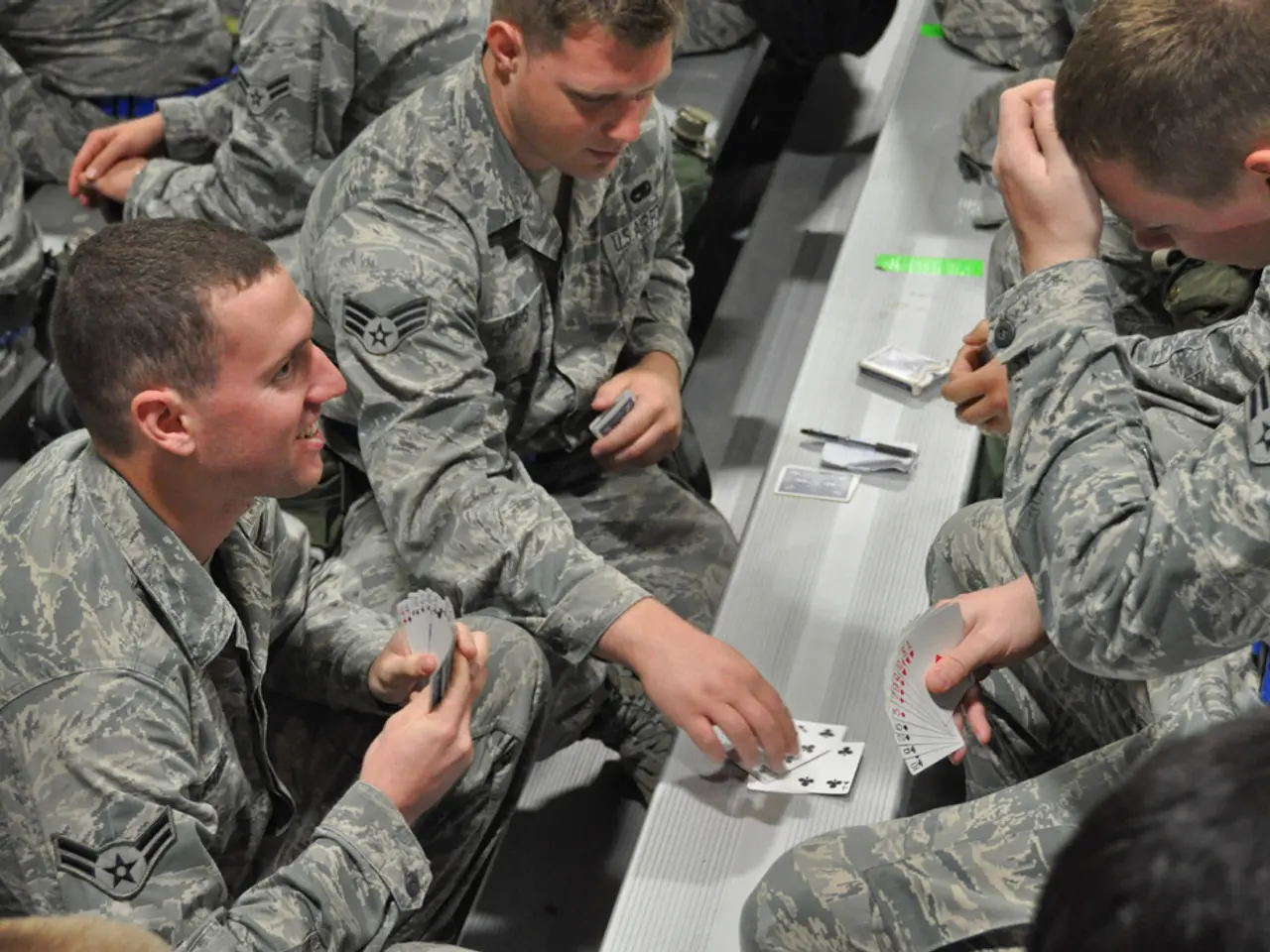"Achieving Poker Self-Discipline: The Secret for Unrelenting Victory"
In the fast-paced world of poker, discipline is the unwavering cornerstone that separates the amateurs from the professionals. Here are some techniques, strategies, and exercises to help build and maintain the discipline needed for long-term success in poker games.
**Techniques for Building Discipline**
1. Emotional Control: Recognizing and managing frustration is crucial. Taking breaks when necessary can prevent impulsive decisions and maintain a consistent strategy.
2. Consistent Strategy: Stick to your game plan, even during losses. Avoid changing your strategy out of frustration or during a losing streak.
3. Bankroll Management: Maintaining a sufficient bankroll and avoiding high-stakes games reduces stress and allows for more strategic play.
**Strategies for Long-Term Success**
1. Regular Study: Dedicate time to studying poker strategies, focusing on overlooked areas to improve your game.
2. Multi-Tabling: Practicing playing multiple tables improves the ability to handle different situations and opponents simultaneously.
3. Image Control: Manage how opponents perceive you. Use your table image to influence how others play against you.
4. Adaptability: Be flexible and adjust your strategy based on the table dynamics and your opponents' behavior.
**Exercises for Maintaining Discipline**
1. Mental Exercises: Engage in mindfulness practices to improve focus and resilience during games.
2. Self-Review: Regularly review your game sessions to identify areas for improvement and stay accountable.
3. Practice Patience: Intentionally slow down your decision-making process to ensure thoughtful and strategic play.
Embracing losses as lessons is a key aspect of building poker discipline. Avoiding repeating earlier mistakes, taking brief pauses, and seeking insight from successful players can help maintain poker discipline. Taking regular breaks during long poker sessions can help prevent emotional exhaustion and maintain discipline.
Meditation, breathwork, keeping a poker notebook, and establishing session rules prior to play can help strengthen poker discipline. Studying the psychological habits of successful poker players, such as Daniel Negreanu, Phil Ivey, and Fedor Holz, can provide insight into their discipline and help improve one's own game.
Even when luck is against you, poker discipline involves making reasonable, +EV choices. Poker discipline involves following bankroll management guidelines regardless of circumstances. Mastering poker discipline can help players endure poor beats, flourish during heaters, and have a long, successful career at the tables.
Keeping a poker journal can help document sessions, feelings, errors, and changes, creating a feedback loop for development and self-reflection. Practicing mindfulness and emotional control can greatly enhance one's poker discipline. Pausing after losing a large hand and reminding oneself that poker is a long-term game can help maintain discipline and focus on making the best choices moving forward.
The quote, "In poker, you can't control the cards you're dealt. But you can always control how you play them," emphasizes the importance of discipline in poker. Poker discipline involves following a plan, folding when necessary, and walking away when emotions urge otherwise. Poker discipline includes controlling emotional responses such as tilt or overconfidence. Mastering the art of bankroll management is essential for building poker discipline.
In the field of casino-and-gambling, mastering poker discipline is key to separating the amateurs from the professionals. Maintaining emotional control, especially during losses, is crucial in managing frustration and preventing impulsive decisions, focusing on casino games like poker. Developing a consistent strategy and sticking to it, even during losing streaks, is another technique for building discipline in casino-games like poker.




